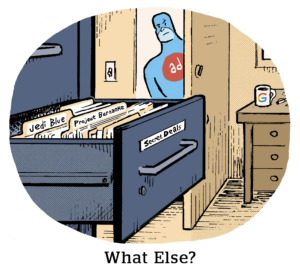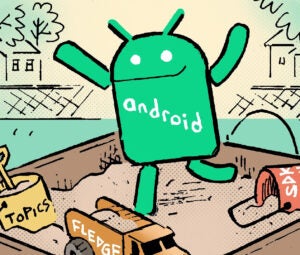 It has become de rigueur at the Interactive Advertising Bureau’s annual conferences for executives to take to the stage for sessions that were half encouraging and half lecturing industry professionals for getting the science of digital marketing right, while not quite nailing down the art side of the equation. This year’s IAB Annual Leadership Meeting in Phoenix kicked off with a series of talks that highlighted the progress achieved and the issues that remain stubbornly elusive.
It has become de rigueur at the Interactive Advertising Bureau’s annual conferences for executives to take to the stage for sessions that were half encouraging and half lecturing industry professionals for getting the science of digital marketing right, while not quite nailing down the art side of the equation. This year’s IAB Annual Leadership Meeting in Phoenix kicked off with a series of talks that highlighted the progress achieved and the issues that remain stubbornly elusive.
This year’s theme, “Big Data & Big Ideas: Friends, Enemies, or Frenemies,” showcased the problems of understanding the surfeit of data marketers, agencies and publishers are increasingly hard pressed to understand and deploy in the service of their advertising programs. As the first speaker, NY Times data guru Nate Silver told the gathering on Sunday, “We have an evolutionary instinct to see patterns, often we’re seeing patterns in the noise,” meaning that data is too often used to confirm existing ideas, not alter them. And that’s where data in the service of creative can go a wrong.
That point was driven home during the Monday morning general session, when Jim Speros, Fidelity Investments’ EVP/CMO, attempted to illustrate the issues marketers are wrestling with regarding the use of Big Data in the service of “big creative,” saying, “Collecting too much data leads to chaos. What we really want is to organize it in a way that provides clarity.” Easier said than done, he conceded, but an essential requirement if digital advertising is to evolve.
Before Speros’ presentation, IAB chief Randall Rothenberg provided a spirited defense of the industry’s efforts on a range of issues, particularly privacy and the ability of digital ad companies to self-police on behavioral targeting. But that was a prelude to his delivery of a gently sarcastic critique of digital ad pioneers, imaging them dismissing the traditional functions of advertising. “”Why use alchemy and guesswork when we have algorithms? Who needs pretty ads?”

Speros answered Rothenberg’s Socratic dialogue by first outlining the virtues of data — dubbed the “three V’s”: volume, variety and velocity — and the limitations and challenges associated with those benefits.
“Data is the lifeblood of fidelity, but Big Data is not processing power, storage tech, or algorithms; it’s about what you can do,” Speros said, saying that it allows for rapid experimentation, smarter decision-making and the generation of powerful predictive insights.
But ultimately, with all this data so easily accessible to a major company like Fidelity or to a small startup, Big Data is also the “Great Leveler.” The difference becomes in how well you understand the data as well as the understanding of an audience’s emotional connection to a brand.
“What happens when the playing field is leveled and companies learn how to harness big data? What is a brand’s role when the playing field is leveled?” Speros asked. “First and foremost, brand is a trust mark. Trust is the most important factor we have. Brand is a relationship, think about the brand we have with our smartphones. People are loyal to their products and their companies. It exists to create a desire, whether rational or irrational. Advocacy becomes a part of it. We hope people will love a brand so much, they will advocate on their behalf.”
Rothenberg then joined Speros on stage. “So what you’re saying is, in effect, Big Data creates the frame for thinking about the idea, the emotional connection.”
Speros nodded. “Someone has to come up with an idea,” he said. “I don’t think you can ever bottle it and hope not, because if that does happen, machines really will take over our jobs.”












